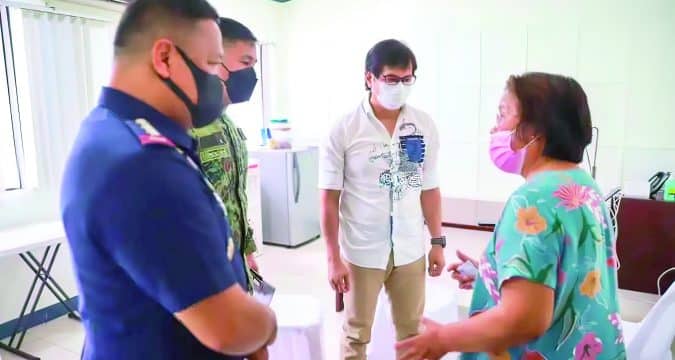
MANILA (UCAN): Leila De Lima, ex-senator, lawyer, and vocal critic of former president Rodrigo Duterte, was taken briefly held hostage on October 9 at Camp Crame, the Philippine National Police Custodial Centre, in Quezon City in Manila.
Bishop Pablo Virgilio David, president of the Catholic Bishops’ Conference of the Philippines condemned the incident saying the country’s justice system was “terribly wrong.” Teresa Montero, a member of the Catholic group, Jesuit Prison Ministry, called on the authorities to investigate whether the inmates who sought to flee suffered from psychological problems due to harsh conditions.
Three inmates, suspected members of the Abu Sayyaf terrorist group, were attempting to escape the facility. One entered De Lima’s cell and threatened her with a knife. The militants, detained for kidnapping and beheading foreign hostages, were later reportedly shot dead by police.
De Lima called the ordeal a “near-death experience,” while enduring more than five years of “unjust detention.”
“On top of this ordeal, I also had to survive the knife of a fellow detainee who took me hostage in a desperate attempt to make known their grievances to the public,” she said in a statement.
“After being told by the hostage-taker that since his two other companions were already dead, he was certain he would also be killed and he might just as well also kill me, I consider what happened to me as a near-death experience,” De Lima added.
Following the hostage crisis, Interior secretary, Benhur Abalos, said that the government is sincere about De Lima’s security and safety as well as that of other inmates.
“One thing I can say right now and can assure you, our president said the important thing is for everyone and former Senator Leila de Lima to be safe. That’s why he is looking for somewhere De Lima could be safe. We looked for another place, but Senator De Lima said she feels very safe where she is,” Abalos told reporters on October 10.
After being told by the hostage-taker that since his two other companions were already dead, he was certain he would also be killed and he might just as well also kill me, I consider what happened to me as a near-death experience
Leila De Lima
“What happens when the weighing scales in the hand of lady justice are tilted but it is the nation that’s blindfolded?” Bishop David asked in a statement.
As we celebrate the 500 years of Christianity in the Philippines. The Chaplaincy to Filipino Migrants organises an on-line talk every Tuesday at 9.00pm. You can join us at:
https://www.Facebook.com/CFM-Gifted-to-give-101039001847033
“When the real criminals who should be in jail are scot-free and the ones who hold criminals accountable are made to languish in jail, then you can be sure that there is something terribly wrong with the justice system,” Bishop David said.
Montero said that in prison ministry they are taught to pray, to trust in the Lord and fellow men, and to wait, and urged people not to judge the inmates for their misdeeds alone.
“Prisoners were often judged by society as hopeless. But we taught them to believe in themselves, that they can still change for the better because God created them as good,” Montero said.
She also said that it was the authorities’ duty to make sure all security protocols were in place, so prisoners could not entirely be blamed.
“When you are in a detention facility, protocols must be followed because the assumption is always prisoners will escape. The fact that the three of them did try, most probably out of depression, tells a lot about how our authorities take prison security lightly,” Montero added.
De Lima, a former human rights commissioner and justice secretary of the Philippines, investigated Duterte’s alleged death squad, which was supposedly tasked to kill drug suspects when the former president was the mayor of Davao City.
She was arrested in 2017 during Duterte’s time as president on charges of having links to drug lords. Critics say the charges against her were fabricated.
Rights groups say Filipino prisoners suffer from overcrowding and a lack of basic facilities.
In 2019, Amnesty International reported that the Philippines had more than 215,000 prisoners, or 200 prisoners per 100,000 citizens in about 1,000 prisons.
Philippine National Police data showed that as of May 2021, about 117,300 people were in prisons across the country.



